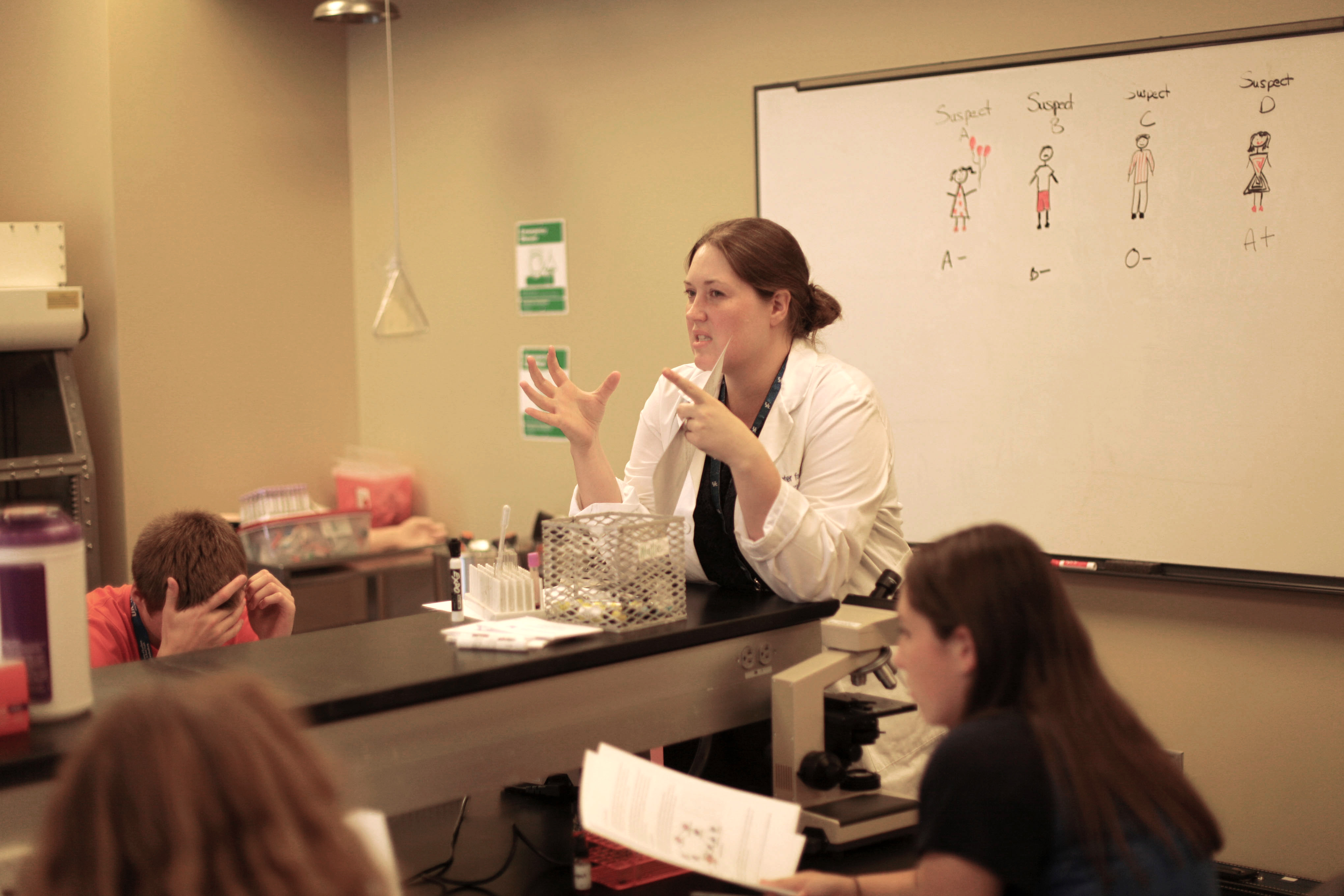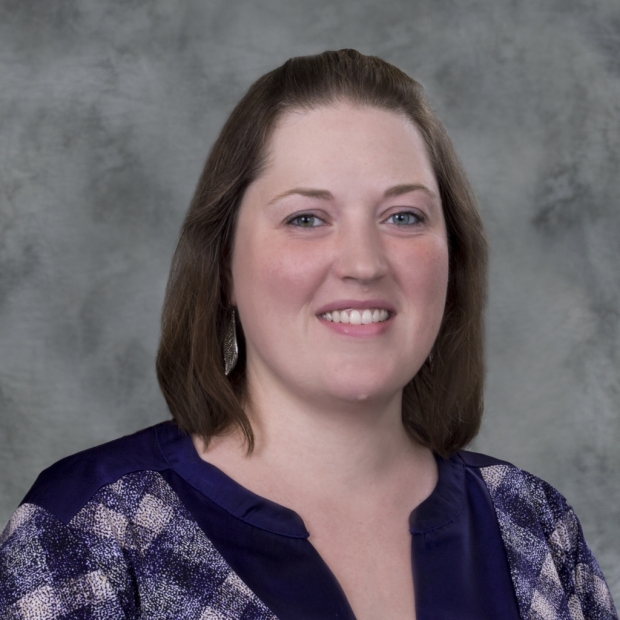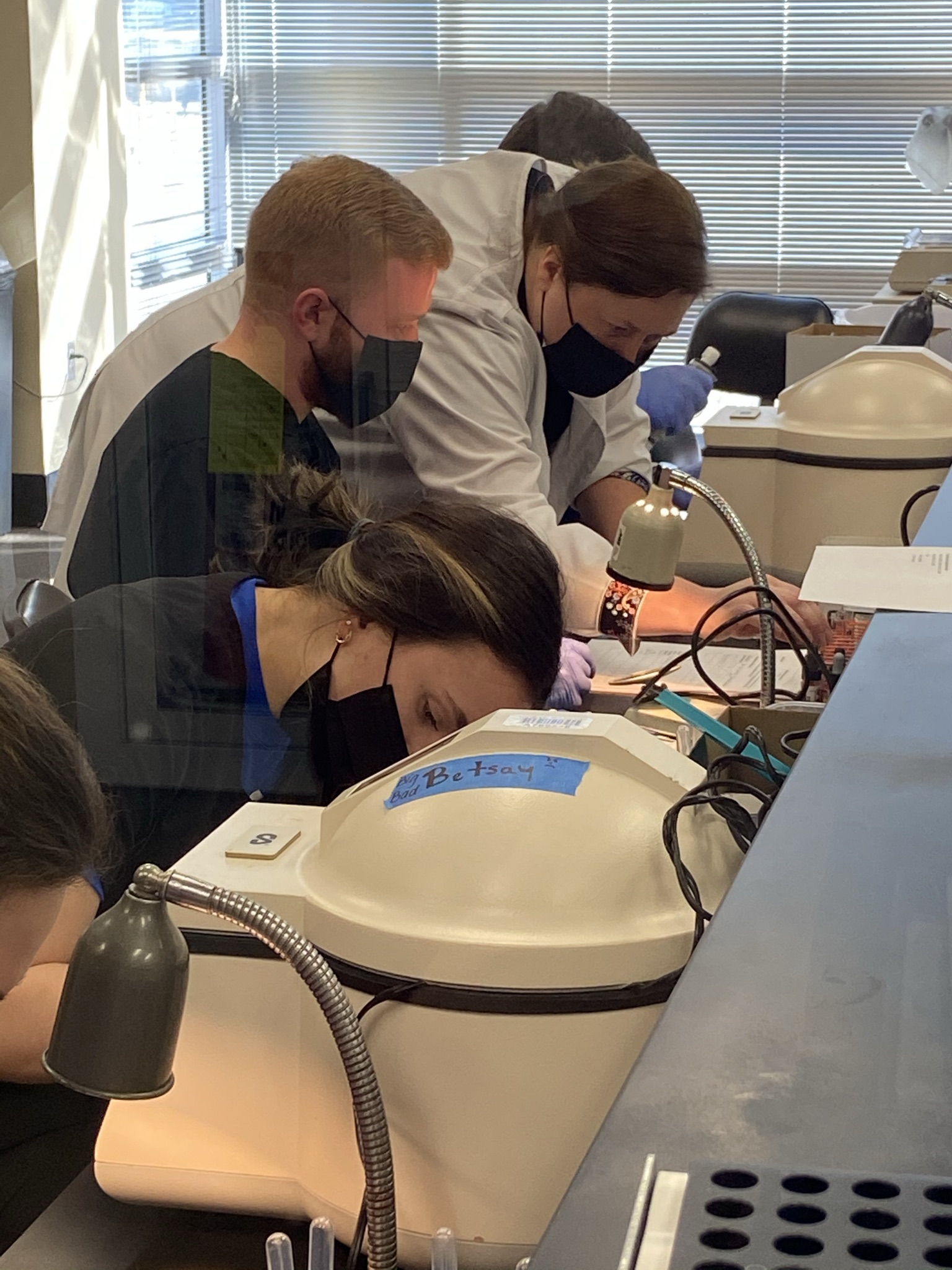GATEWAY MAGAZINE: How I Became a Medical Laboratory Scientist
Apr 22, 2024There are three reasons to read this story: 1. It's Medical Laboratory Professionals Week. 2. It appears in the latest issue of Gateway Magazine. 3. It's awesome. Read on.
Celebrating Medical Laboratory Professionals Week
By Bianna Music
Clinical Lab Services Coordinator, Center of Excellence in Rural Health
HAZARD, Ky. — It’s called the Hidden Profession. And it’s been here — in some form or another — for 90 years.
Of course, I never knew about it. Not until I’d grown up and left my hometown of Happy, Ky. (an unincorporated part of Perry County). My name is Bianna Music, and I wanted to become successful. I left home with the intent of getting a job and doing something I loved, so I got a chemistry degree and found myself working in a lab at Indiana University.
Turns out I wasn’t happy. Not at all.
I was doing research, but I realized I wouldn’t see the results of what I was doing for 10 to 15 years. It was noble, but I felt like I had no purpose. I wasn’t being fulfilled personally and I was making less money than I would have made at a fast food restaurant. Plus, I missed home.
But back in Perry County, I realized there aren’t very many jobs for someone with a chemistry degree and 10 years of lab experience. Or so I thought.
Accepted in Hazard
While I was back home, I saw an advertisement in the newspaper for UK’s Medical Laboratory Science program. I put my application together and sent it in and was accepted here at the Hazard Campus. I ended up getting my second bachelor’s degree.
I immediately got a job while I was a student making triple the amount of money I’d been making. But even more important, I found my purpose. I found my passion — because I can see the change, and how I make a difference in Eastern Kentucky. What I do matters to the health of my family and friends. It matters to the health of my entire community.
In fact, it would hit closer to home than I ever imagined.
Giving hope
 Eventually, I got my master’s degree and started teaching in the program. Now, I am the Clinical Lab Services Coordinator in the Center of Excellence in Rural Health in Hazard. I love it, and it means so much to me — even more than I first thought.
Eventually, I got my master’s degree and started teaching in the program. Now, I am the Clinical Lab Services Coordinator in the Center of Excellence in Rural Health in Hazard. I love it, and it means so much to me — even more than I first thought.
Five years ago, my dad ruptured his stomach, and if you know anything about that, bacteria went to places it shouldn’t. He went septic — essentially getting an infection that carried all over his body, and it can be fatal.
So, I’m sitting in the hospital, and I’m looking at my dad. I’d been teaching for about three years at this point, and the doctors and the physicians are taking blood cultures so they can figure out which bacteria is present — then they can give him the proper antibiotics. They are giving me numbers representing lactic acid, and his white count.
Those are the numbers that we cling to, to hope he’s getting better.
I’m sitting there and looking at him. And then it hits me that the students — the professionals — that I help train are downstairs giving us these numbers.
They are the ones giving me hope.
And it all kind of clicked with me, how I was making a difference. We’re training professionals who are helping to meet our rural health need. We’re training those who will, one day, be giving out hope.
The Hidden Profession
We call it The Hidden Profession.
What I mean by that is, as Medical Laboratory Scientists, we’re part of the healthcare team but very few people realize that we exist. We’re never face to face with the patient. The example I give is: You know how you get your blood taken? Phlebotomists collect and check your body fluids. Then the doctors get your numbers, which helps them decide what to do.
We in MLS are in the labs doing the processing. Most people don’t consider where that information comes from, that there is a lab somewhere where people are analyzing, spinning out data, compiling it in an understandable way to let them know if you’re having liver or kidney failure, your blood levels, or how your heart’s doing.
All of that comes from what the lab is putting out. There is literally a small army of us in a hospital, and we see thousands of patients a day, when you think about it. But we’re the Invisible Men and Women because we don’t have patient interaction.
Do most people know what a Medical Laboratory Scientist is? No. And there are hundreds of jobs across the state begging for MLS professionals to hire.
90 Years
This year marks 90 years that UK has given a Medical Laboratory Science degree.
Now, it’s been called other names: clinical laboratory science, medical technologist, etc., but they’re all the same thing.
But we’ve never had a full class here in Hazard. We have a dire need for MLS professionals in Eastern Kentucky, and we have open seats. The salaries keep jumping, yet we still don’t have the students to fill the positions. I think what we really need is to bring this occupation to the forefront.
If people knew about it, then they would want to pursue it, just like I did. This week, we’re celebrating Medical Laboratory Professionals Week, and I want everyone to know the opportunities we have. There are incredible scholarships out there, ones that can pay for a student’s entire tuition.
And there are jobs everywhere.
But, even more important, Medical Laboratory Scientists are filling a need by helping these communities. For the last 10 years, we’ve had about 65 graduates, and about 60 of them have stayed to work in our region. I found my purpose in this field. I make a difference.
Now I get to help others do the same.
Are you interested in applying to Medical Laboratory Science? Visit https://www.uky.edu/chs/medical-laboratory-science
Or Contact: biannamusic@uky.edu
